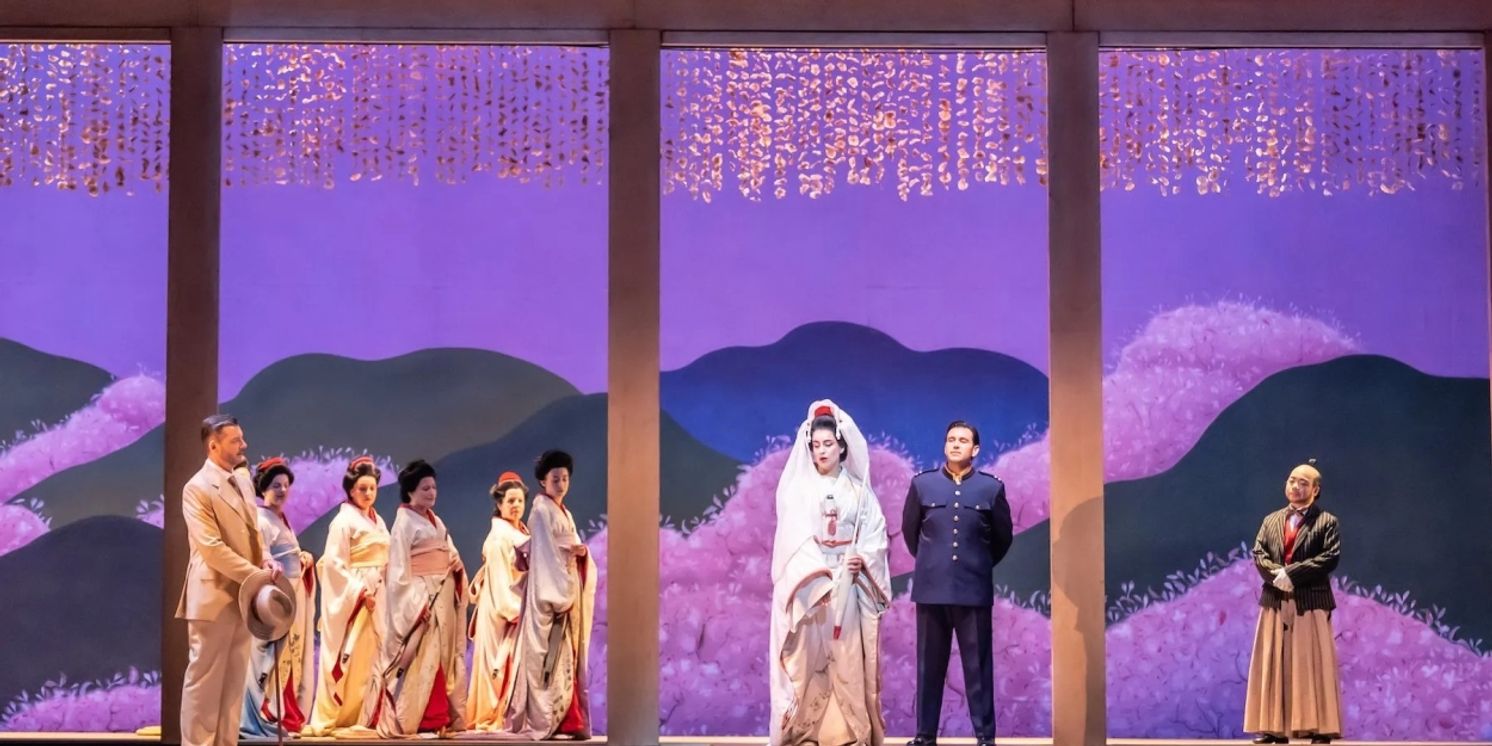Review: MADAMA BUTTERFLY, Royal Opera House
Tears, boos and applause: this updated Madama Butterfly is as life-affirming and cathartic as ever.

![]() There are few things more life-affirming than christenings, orgies and operas. And few works are more life-affirming and cathartic than Giacomo Puccini’s Madama Butterfly.
There are few things more life-affirming than christenings, orgies and operas. And few works are more life-affirming and cathartic than Giacomo Puccini’s Madama Butterfly.
This latest outing for Moshe Leiser and Patrice Caurier’s 2002 production carries forward the welcome changes seen when it came to Covent Garden a couple of years ago. Its longstanding racial controversies around the depictions of Cio-Cio San and her compatriots (highlighted in last year’s untitled f*ck m*ss s**gon at the Young Vic) led to consultations with Japanese specialists, especially in the areas of costume and choreography. Small changes in the singers' posture, their vocal delivery and even how they place their hands have increased the overall authenticity and made it less about the Western view of Japan.
That the art form’s leading female characters have deeply unhappy love lives - and are more likely to end up in a morgue than in a marriage - is almost a given but Cio-Cio San still suffers one of the most heart-rending deaths in opera. Thanks to Lithuanian soprano Asmik Grigorian (Hrachuhí Bassénz takes over the role from 6 April) and a stirringly bravura turn from conductor Kevin John Edusei, we are once again riveted to our seats, despite knowing where this journey ends.
The minor revisions made in this latest take add a measure of authenticity which doesn’t detract from the core production’s power; those that decry these alterations as unnecessary or woke nonsense and things should just be left as they are may want to note that Puccini famously updated his original work four times after its official debut before finally arrive at what is noq known the “Standard Version”. Christian Fenouillat’s simple staging is unimpressive at first glance but means that, in terms of sensory balance, the vocals always stand out from the visuals.
Cio-Can San’s demise is all the more painful for Pinkerton’s actions, something that Joshua Guerrero digs into with real gusto. The Mexican-American tenor’s duet with Grigorian in Act 1 is a back-and-forth to be truly savoured. His acting brings out the grim sex tourist nature of the man who runs from his Japanese bride to set up another life in his homeland. The true mark of a wonderful villain is how he is received after the curtain falls and Guerrero was joyfully booed by the audience before waves of rapturous applause. It really doesn’t get any better than that.
Hongni Wu’s sweetly played Suzuki and Lauri Vasar’s stern Sharpless provide stout support unlike the recent Arts Council England report that painted works such as Madama Butterfly as irrelevant to contemporary life. There is still more work to be done at all levels to stage new operas and bring in fresh audiences but, as this production amply shows, there is no point replacing Mona Lisa with a Banksy for the sake of it.
Madama Butterfly runs at Royal Opera House until 15 April before returning for three more shows in July.
Photo credit: Marc Brenner
Reader Reviews
Videos

